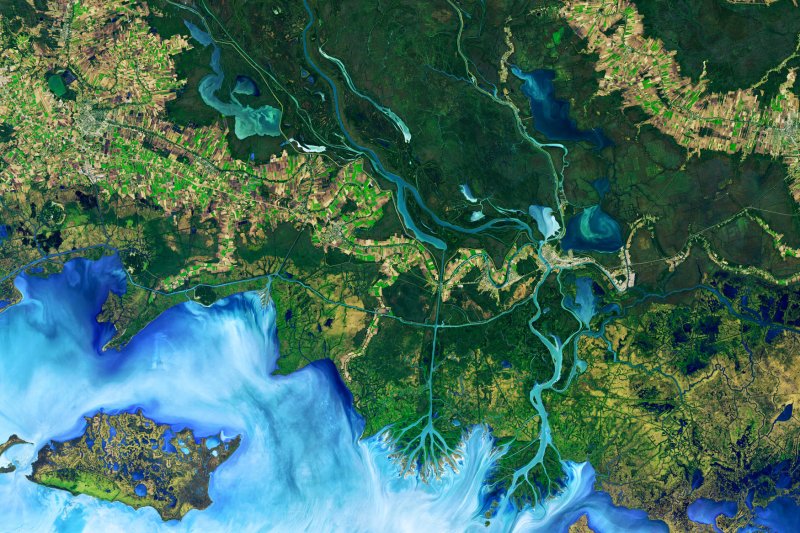River system complexity is essential to the health and stability of animal populations, new research shows. Photo by NASA/UPI |
License Photo
June 13 (UPI) -- River networks are dynamic places where change is a constant, but some networks are more complex and dynamic than others. New research suggests complexity works to the advantage of animal populations.
More complex river systems feature greater levels of branching, which offer a more diverse array of habitats. According to the latest research, conducted by scientists at the University of Minnesota and the University of Hokkaido in Japan, this complexity helps animals insulate themselves against the effects of large-scale environmental changes.
Using the data from 18 years worth of fish population surveys in Japan, scientists designed models to simulate the effects of environmental fluctuations on watershed populations.
"We discovered watershed populations were more stable when they were situated in more complex river networks," Hokkaido researcher Akira Terui said in a news release. "Network complexity of rivers may act as a natural defense system against environmental uncertainty."
The study, published this week in the journal PNAS, showed branching is most beneficial when branches offer unique ecological conditions -- habitats different than the those offered by the main stem.
The findings also showed human activities that minimize river system complexity are likely to make freshwater ecosystems and their resident species more vulnerable.
Previous studies have shown increasing levels of human engineering and development have squeezed rivers into simple, straight lines, increasing the risk of flooding. The new research suggests the phenomenon has also put species at risk.
"Human activities often reduce complexity of stream networks," said Jacques Finlay, a professor of biological sciences. "This work demonstrates the critical importance of maintaining diverse environmental conditions throughout watersheds for populations of river organisms."
Authors of the latest study hope conservation efforts in the future will account for the importance of watershed complexity.
"The results of the study should be widely applicable to populations of many riverine organisms," Terui said. "Recognizing and managing for complexity of river networks is a promising tool to conserve riverine biodiversity as well as natural resources under global changes in climate and land use."















